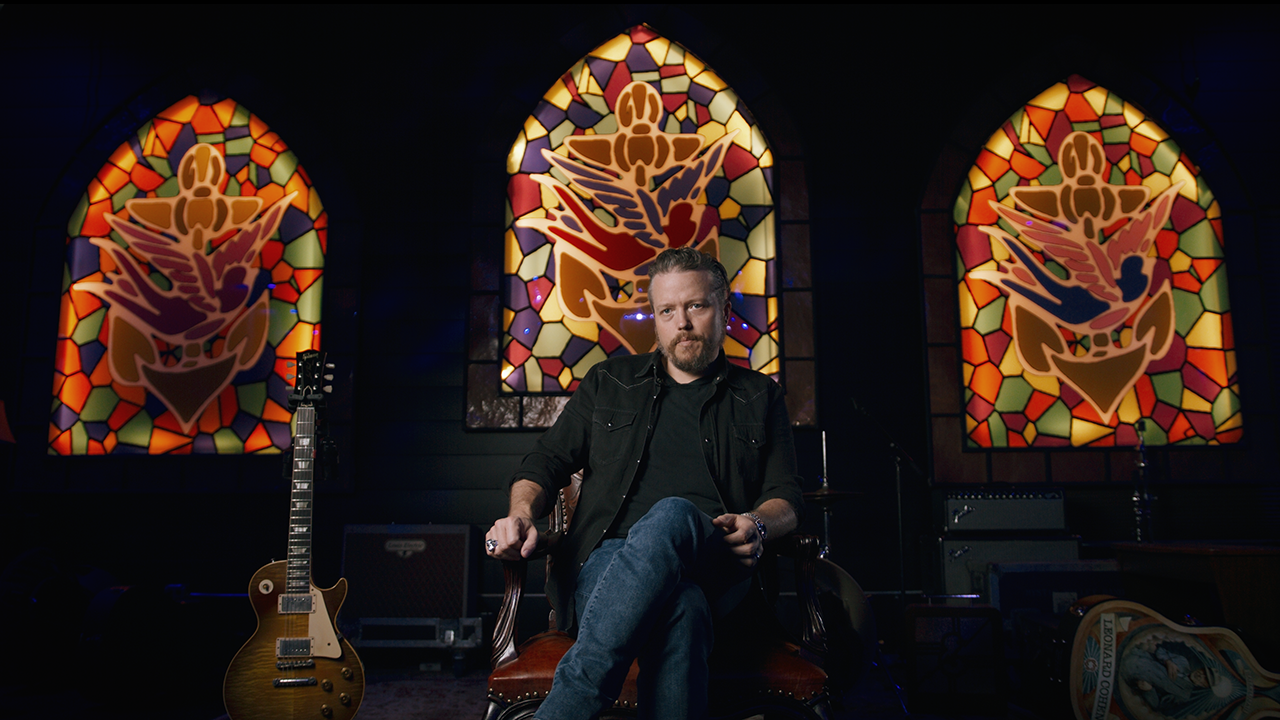Ernie Ball String Theory is a web series that explores the sonic origins of some of music’s most innovative guitar players. In this episode, we speak with Jason Isbell about his history with guitar and early influences, his writing process, and his ability to humbly create Grammy-winning albums throughout his career. Find out the top six things we learned below…
1. Blues music was his first establishment. (0:16)
JI: The thing that I liked the most early on was Blues music. My grandfather, if I would sit and play rhythm guitar for him for a couple of hours through gospel songs and old country songs, then he would turn the guitar flat in his lap, tune it to open E or open D and play it with a pocket knife. And that was my reward for dealing with two hours of country and gospel songs. And I became obsessed with that really early on.
2. Starting out as a guitar player helped him become a better songwriter. (2:41)
JI: The fact that I started out as a guitar player really I think helped me be a better song writer. I’ve always been the kind of guitar player who liked to play melodies that I could sing. I think I read Eddie Van Halen say… “you should be able to sing every melody that you play, no matter how complicated it is.”
3. Playing in the band, Drive-by Truckers taught him to be unapologetic. (4:03)
JI: I learned from those guys that nobody can make you stop touring and playing, nobody can make you stop. I learned to speak my mind in my music and I learned not to be afraid to sing things that didn’t paint me in the best light. And I learned that people still like loud guitars.
4. How to create a style that’s all your own. (7:10)
JI: I think if I have a style of guitar playing or individual way of approaching the instrument, it probably came out of following the right mistakes. I think I started off imitating like everybody does. And I was way into Eric Clapton for a long time when I was 10, 11, 12, 13 years old. Then I got obsessed with country players and started listening to Jerry Donahue and Danny. And I spent a lot of time obviously with Duane Allman, and Lowell George, and Sonny Landreth, and Bonnie Raitt. That sort of thirst for as much knowledge, as much relevant knowledge about guitar playing that I could get, being the kind of person who’s naturally curious probably helped me develop my own style as a player more than anything else. I can’t do Eddie Van Halen or Chet Atkins justice, but I can find something in between the two. If you play something weird enough for nobody to know where your influences came from, then you have a style all your own.
5. Isbell has played Ernie Ball strings for 32 years. (9:34)
JI: I think the first pack of Ernie Ball Slinkys that I had were on my first electric guitar when my uncle gave it to me. I’ve got it right over there. It’s an Electra MPC. I had to build in effects cavities and had toggle switches so you could turn on the effects, and you could take them out and switch them out with other effects and stuff. That’s what I have used on electric guitars ever since. We are looking at 32 years of the same strings.
6. Guitar playing should feel honest. (13:56)
JI: As a guitar player… you just need a reason for what you’re doing, and need that to not be self-serving and that’s all. That’s all I need for somebody to be a good guitar player. I don’t need you to have a lot of technical ability or be in tune. I just want to feel like you’re trying to tell me something rather than you’re trying to show me something. I want it to feel like communication rather than display. And I think that’s kind of at the core of honesty.
Strings
Jason Isbell gets his signature sound using Regular Slinky electric guitar strings.

String Theory
Check out similar String Theory films from Ernie Ball featuring artists such as Larkin Poe, Clint Black, Don Felder, J Mascis of Dinosaur Jr., Clay Cook of Zac Brown Band, and Kenny Wayne Shepherd.


